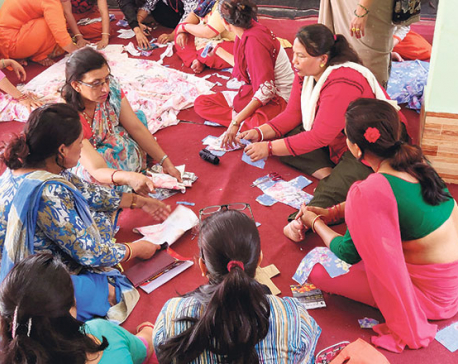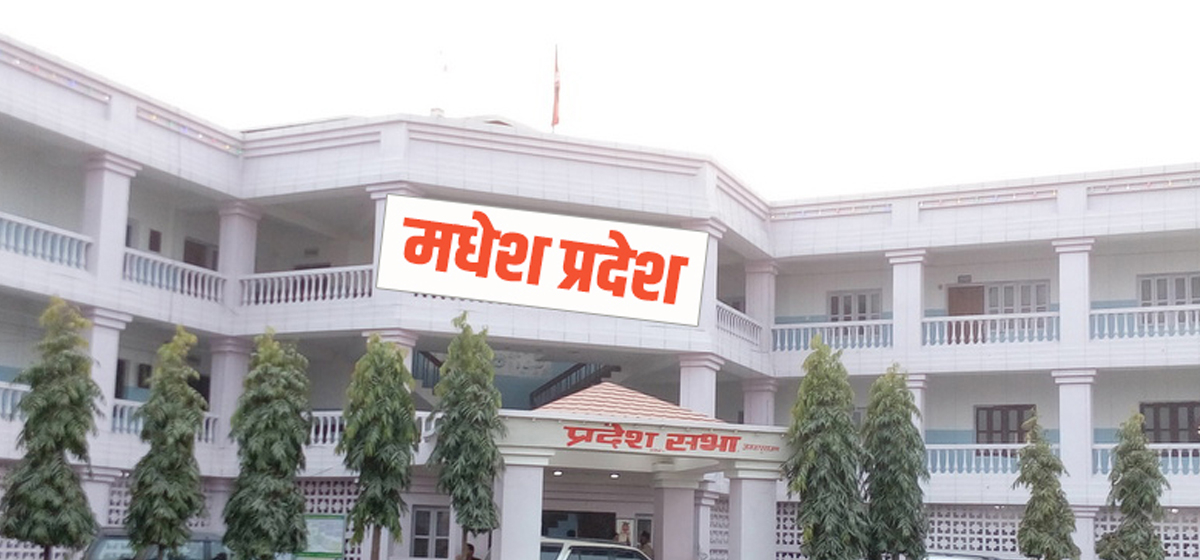
OR
'Govt decision to provide 90% custom duty waiver on import of sanitary pads puts Rs 6 billion investment in crisis'
Published On: May 31, 2022 09:03 PM NPT By: Republica | @RepublicaNepal
_20220531210142.jpg)
KATHMANDU, May 31: The Nepal Sanitary Pad Manufacturers Association (NSPMA) has protested against the government's decision to give a 90 percent custom tax waiver on the import of sanitary pads.
Organizing a press conference in Kathmandu on Tuesday, the NSPMA warned that the government's decision would lead to the collapse of Nepal's sanitary pad industries as the local manufacturers would be unable to compete with the imported products.
The government in the annual budget for the fiscal year 2022/23 had announced a 90% waiver on custom tax concession on the import of sanitary pads. Currently, the government imposes 15 percent custom duty on all imports of sanitary pads which will come down to 1.5 percent after the start of the new fiscal year.
The government in the annual budget has also announced that only 1% tax will be levied on the import of raw materials that are needed to manufacture pads to help domestic producers.
However, the NSPMA has objected to the announcement of 1% reduction in customs duty on raw materials as there has not been any reduction in 54 raw and packaging materials needed for manufacturing pads.
Speaking at the program, NSPMA President Dolraj Adhikari said the new budget has done injustice to the local sanitary pad industrialists. "We will pay taxes to the government. All we want from the government is a suitable working environment," he said.
There are 35 to 40 small and large scale sanitary pad industries operating in Nepal. Over 900 million units of sanitary pads are being produced with an investment of Rs 6 billion. It is estimated that some 6,000 people are getting employment opportunities in these industries.
Adhikari complained that the government’s decision gives unjust benefits to foreign manufacturers. “The government's decision to import pads with just 1.5 percent custom tax has pushed domestic industries on the verge of closure. There is a risk of losing 6,000 jobs," he said.
You May Like This

Budget doubled for PM Employment Program
KATHMANDU: The government has increased the budget for the Prime Minister Employment Program by more than two folds for the... Read More...

Initiative to produce locally-made sanitary pads
KATHMANDU, June 18: Nepal Natural and Human Resources Development Association (NAHUDA), a local non-government organization, is organizing a three-day workshop... Read More...

Krishnapur municipality avails sanitary pads to school girls
KANCHANPUR, Sept 11: The Krishnapur municipality in Kanchanpur, the district in Province 7, has made arrangements for availing sanitary pads... Read More...





Just In
- Clash erupts between police and agitating locals in Dhanusha, nine tear gas shells fired
- Abducted Mishra rescued after eight hours, six arrested
- Forest fire destroys 13 houses in Khotang
- First meeting of Nepal-China aid projects concludes
- Lungeli appointed as Minister for Labor and Transport in Madhesh province govt
- Bus knocks down a pilgrim to death in Chitwan
- One killed in tractor-hit
- Karnali Chief Minister Kandel to seek vote of confidence today














Leave A Comment